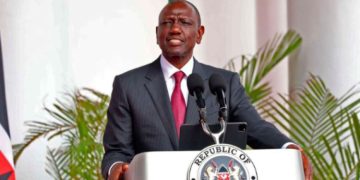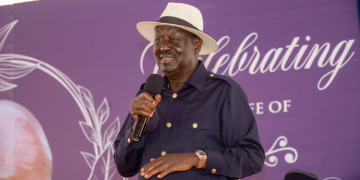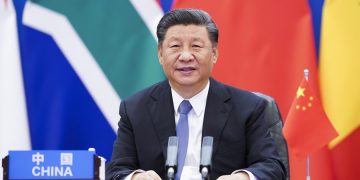The government will engage the Central Bank of Kenya (CBK), commercial banks, and all players in the banking sector to reduce interest rates for traders and investors. Trade Cabinet Secretary (CS) Lee Kinyajui said Kenya is reaching out to investors with significant tax incentives to increase manufacturing in the country.
Kinyajui stated that the government is providing land, establishing special economic zones, and collaborating with the CBK to lower interest rates further.
The CS noted that the interest rate has decreased from 19 percent to 15 percent, which remains high for traders and investors.
“Interest rates in our commercial banks were around 18 to 19 percent not long ago, but it was reduced to 15 percent, which we still consider to be high,” Kinyajui said.
We are working with CBK and the banking sector to bring it to around 12 percent.”
He asserted that Kenya is leading in the East African region in most sectors, including manufacturing.
“We are surrounded by countries that do not have a very strong manufacturing base, yet Kenya is doing very well in the area of fast-moving consumer goods and the clothing sector,” Kinyajui said.
Kinyajui mentioned that major industries have come to invest in Kenya.
He explained that the deals signed during President William Ruto’s recent visit to China will transform Kenya’s industrial landscape.
“The mutumbaa we wear that looks very trendy is actually made here in Kenya, sold new to the US and many other countries and returned here as second-hand clothes,” he added.
Manufacturing Industries Leaving Kenya
He also addressed reports of manufacturing companies leaving the Kenyan market.
Kinyajui dismissed the reports, stating that there is no official list to support those claims.
“I would want a list of those manufacturers who are leaving, because we also create perceptions,” he said.
Also Read: CBK Publishes List of Banks with Lowest and Highest Loan Interest Rates as of March 2025
Lee Kinyajui Explains Changes in Exports
The CS noted that Kenya’s exports have diversified from coffee and tea, which have been the major players.
He explained that this diversification has created a false perception that exports have diminished.
“We have introduced many other products that were not there, our basket has become bigger,” he said.
“Relative to that basket, you can say tea and coffee are now contributing less because there are other players.”
He mentioned other new sectors like Information Communication Technology (ICT) and the financial sector.
For instance, Kinyajui pointed out that Kenya now has Safaricom, which is a major player locally and across the border.
Also Read: Standoff as Banks Completely Reject CBK Proposal on Interest Rates on Loans
He emphasized that all the new sectors are now key players in the economy.
Kinyajui remarked that Kenya was primarily an industrialized economy focused on coffee and tea.
However, he noted that the country is currently a diversified economy that extends beyond traditional exports.
“Our basket is diversified, so when you hear one is not the size it was, it is because we have introduced other aspects,” he said.
“That is why you find that even when we have a problem with one aspect, the economy is still vibrant.”
Follow our WhatsApp Channel and X Account for real-time news updates.











































































